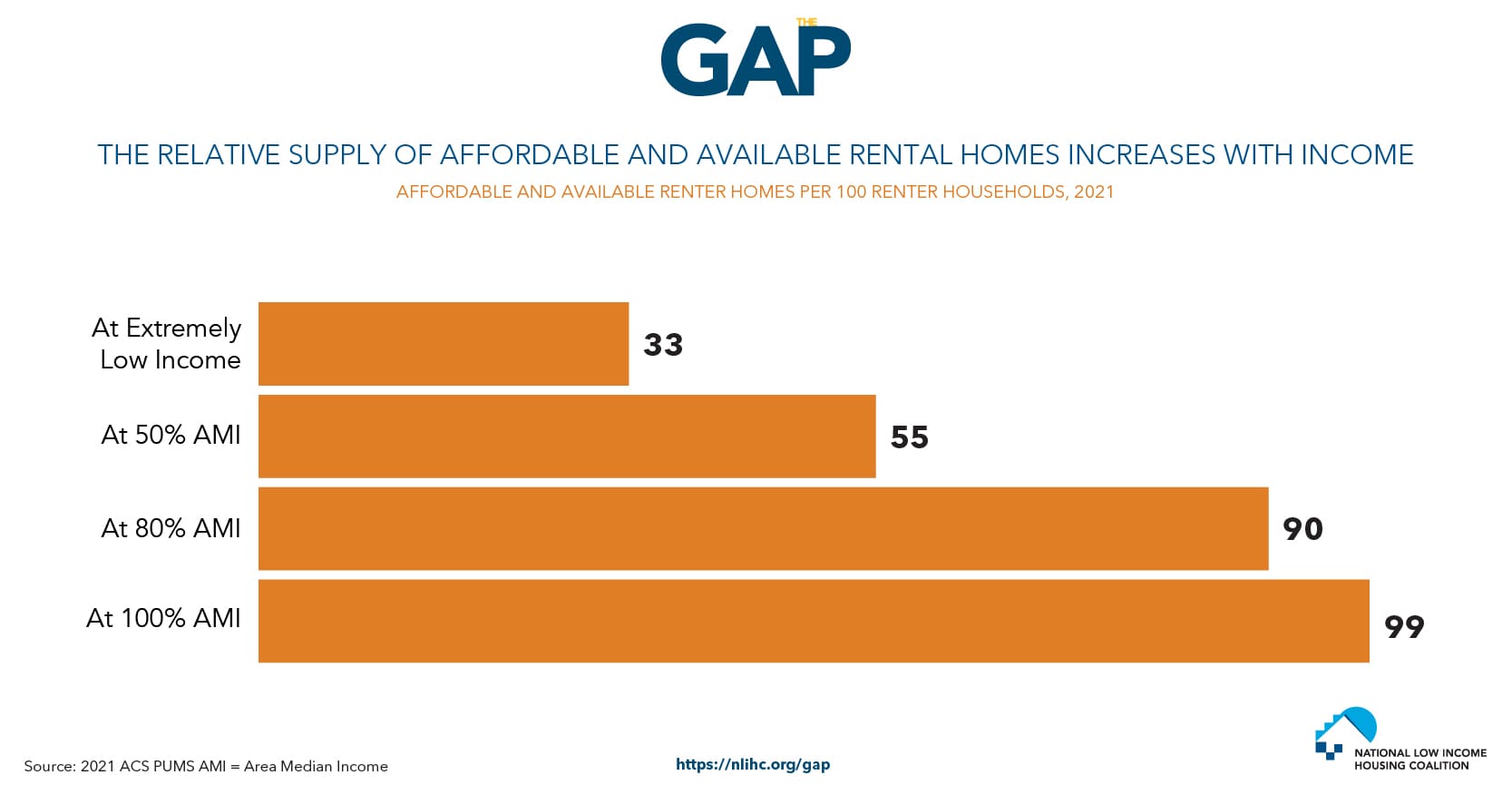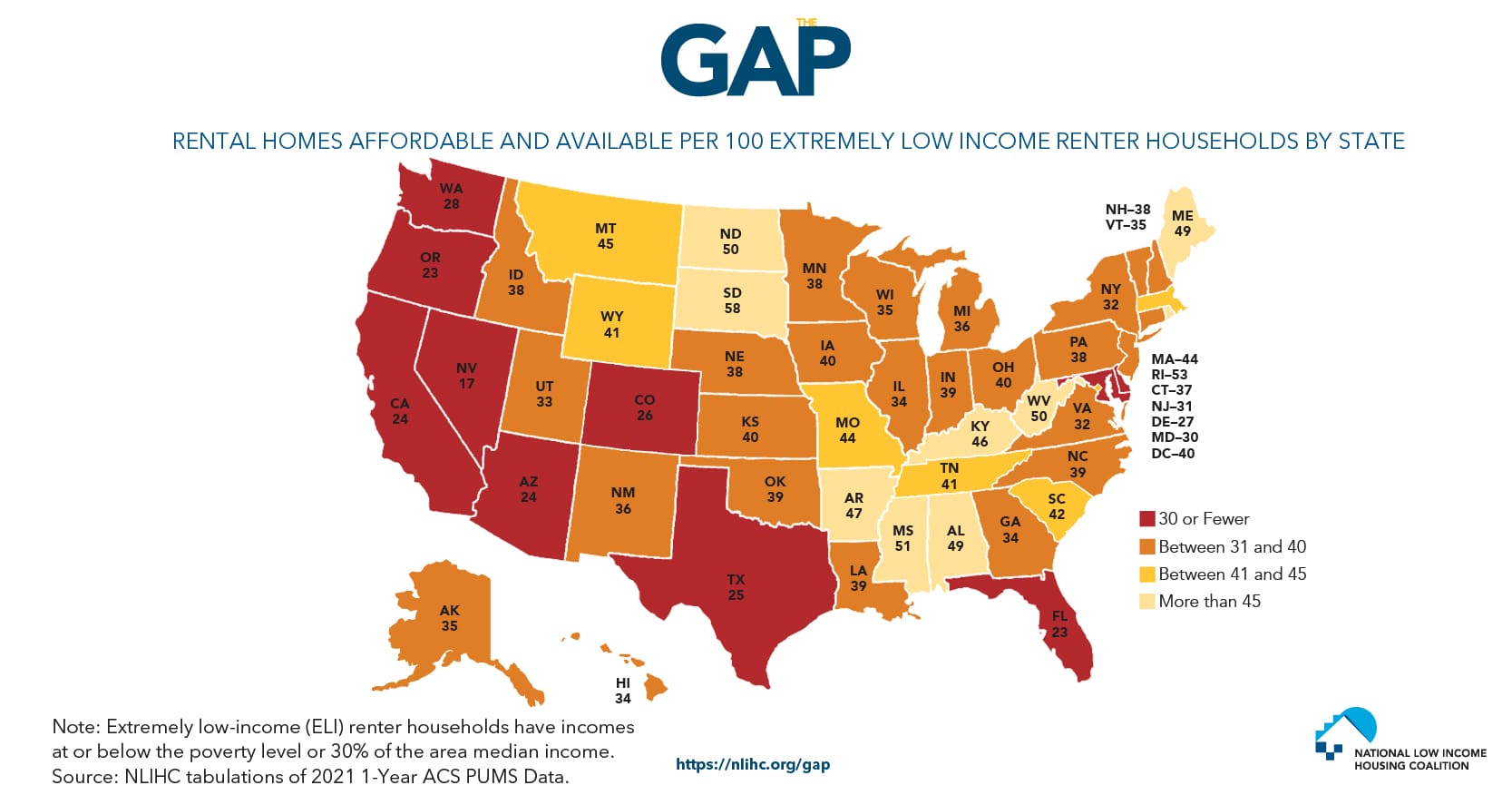
The Gap: A Shortage of Affordable Homes, a new report released today by the National Low Income Housing Coalition (NLIHC), finds a national shortage of 7.3 million affordable and available rental homes for extremely low-income renter households – those with incomes at or below the poverty level or 30% of their area median income, whichever is greater. There are just 33 affordable and available rental homes for every 100 extremely low-income renter households nationwide. As a result, 72% of the poorest renter households are severely housing cost-burdened, spending more than half of their incomes on housing, with little left over for other basic necessities.

Every year, The Gap reports on the severe shortage of affordable rental homes available to extremely low-income families and individuals. The new Gap report finds that the economic repercussions of the COVID-19 pandemic, followed by significant rent increases, drastically impacted the supply of affordable and available rental homes, nationally, in recent years. As households lost income and rental prices increased, the number of extremely low-income households rose, while the number of units affordable to them shrank. Between 2019 and 2021, the shortage of affordable housing for extremely low-income renters worsened by more than half a million units. While rental inflation has cooled going into 2023, extremely low-income renters will continue to face significant barriers to finding and maintaining affordable housing, as their incomes are insufficient to cover even modest rental prices.
In North Carolina, there are 343,385 extremely low-income households but only 135,548 affordable rental homes available to them. North Carolina has 39 affordable and available rental homes for every 100 households with extremely low incomes. Facing a shortage of 207,837 affordable and available rental homes, 72% of these renters are severely housing cost-burdened. “North Carolina’s affordable housing shortage increased by over 12,000 units for extremely low-income households,” said Stephanie Watkins-Cruz, NC Housing Coalition Director of Housing Policy. “This is why we are advocating so strongly for larger investments in affordable housing. The need is not going away, it’s growing larger.”

“As this year’s Gap report makes clear, extremely low-income renters are facing a staggering shortage of affordable and available homes,” said NLIHC President and CEO Diane Yentel. “In the wake of the pandemic, federal housing investments are more critical than ever for sustaining our communities and helping low-income people thrive. Yet House Republicans are now threatening to cut funding for the very programs that provide a lifeline to low-income renters. Balancing the national budget must not be done on the backs of our nation’s lowest-income and most marginalized people and families.”
For additional information, visit: http://nlihc.org/gap








